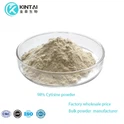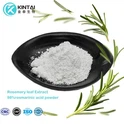Corosolic acid is a triterpenoid compound found in some plant species that has shown promising health benefits in research studies. Specifically, corosolic acid has demonstrated the ability to help regulate blood sugar levels and support healthy glucose metabolism. This makes it of interest for those looking to promote healthy blood sugar control.
Corosolic acid is primarily found in the leaves of the banaba plant (Lagerstroemia speciosa L.), a tree native to Southeast Asia. Banaba leaves have a long history of use in traditional medicines thanks to their unique chemical makeup and health-promoting properties. The leaves contain various beneficial compounds, with corosolic acid being one of the main active ingredients linked to therapeutic effects.
Along with banaba leaves, corosolic acid can be found in other plants in trace amounts, including apples, fig leaves, and jamun (a fruit native to tropical regions). However, banaba leaves contain uniquely high concentrations which make them the primary dietary source.
Sources of Corosolic Acid
- Banaba Leaves
As mentioned, banaba leaves are the richest source of corosolic acid and contain up to 10 times the amount found in other plants. Traditional medicine systems native to Southeast Asia, India, the Philippines, and beyond have utilized banaba leaves to support healthy blood sugar and treat diabetes for generations.
Modern research has sought to confirm these traditional uses and better understand banaba's health benefits. Numerous studies on animals and humans demonstrate that banaba leaves, as well as purified corosolic acid extracts from banaba leaves, can support normal blood sugar metabolism in several ways. These include increasing cellular glucose uptake, improving insulin sensitivity, stimulating insulin production by pancreatic beta cells, and slowing carbohydrate digestion, among other effects.
Thanks to this unique mechanistic activity, banaba leaf preparations have been shown to help moderate blood sugar fluctuations, decrease fasting blood sugar levels, and lower hemoglobin A1C counts. When taken consistently alongside a healthy diet and exercise, banaba's benefits on glucose metabolism and insulin function can promote better long-term blood sugar control.
- Other Dietary Sources
While banaba leaves contain uniquely high amounts of corosolic acid, trace quantities can be found in various other fruits, vegetables, herbs and medicinal plants. These include:
- Apples
- Basil
- Cacao
- Fig leaves
- Jamun
- Rosemary
- Sage
- Thyme
However, amounts from these sources are typically too low to provide a significant therapeutic effect. Those looking to obtain corosolic acid for blood sugar support will need to utilize preparations made from banaba leaves themselves, rather than relying on dietary sources containing only trace amounts.
Benefits of Corosolic Acid
- Antidiabetic Properties
A number of human studies have highlighted that corosolic acid powder holds promise as a supportive supplement for those with impaired glucose tolerance, insulin resistance, metabolic syndrome, prediabetes or type 2 diabetes.
By improving cellular glucose uptake and increasing insulin sensitivity, corosolic acid has been shown to help moderate blood sugar after meals, leading to lower postprandial and fasting glucose levels over time. One study on prediabetic individuals found that taking corosolic acid for just 15 days improved subjects' oral glucose tolerance by over 10%.
Other research indicates the compound's positive effects are most pronounced when combined with banaba leaf extract as a whole. This points to potential synergistic benefits between corosolic acid and other active compounds in banaba leaves.
- Blood Sugar Control
Multiple studies have reported decreases in fasting blood glucose and hemoglobin A1c following supplementation with standardized banaba leaf extracts delivering precise daily doses of corosolic acid.
A 12-week study on type 2 diabetics taking 32 mg per day of corosolic acid from banaba extract realized an average fasting blood sugar decrease from 184 mg/dL down to 135 mg/dL. Patients also saw hemoglobin A1c drop on average from 8% down to 6.2% over the 3 month study period. researchers stated this response was similar to the expected efficacy of some prescription medications and noted no adverse effects.
Additional Health Benefits
Some preliminary research indicates that corosolic acid supplementation may offer other health benefits beyond blood sugar control as well. Early studies show potential antioxidant, anti-inflammatory, and antiviral properties.
However, research in these areas remains limited. More studies are needed to substantiate claims of these and any other ancillary benefits aside from corosolic acid's definitive role in glucose metabolism support.
Commercial Products Containing Corosolic Acid
Due to growing recognition of banaba leaf's antidiabetic properties and corosolic acid's role as an active compound, supplement manufacturers have developed various products delivering precise amounts of corosolic acid, typically paired with other complementary ingredients.
These products include:
- Standardized banaba leaf extracts that indicate exact corosolic acid content on the Supplement Facts label, often ranging from 10-32 mg per daily serving.
- Blood sugar control blends pairing banaba leaf extract delivering corosolic acid with additional herbs and botanicals like cinnamon, bitter melon, gymnema sylvestre extract, alpha lipoic acid (ALA), chromium, vanadium and more. These aim to provide synergistic and multi-targeted support.
- Antidiabetic support formulas containing banaba leaf extract and corosolic acid as part of a proprietary blend alongside targeted nutrients including berberine, biotin, vitamin D, zinc and magnesium.
In the case of any corosolic acid supplementation, it's advised to choose reputable products from established manufacturers who provide independent quality testing as well as clear labeling disclosing precise ingredient amounts. As with adopting any new supplement, starting slowly and monitoring individual response is also recommended.
Conclusion
Corosolic acid is an intriguing phytochemical that continues to display antidiabetic promise as an increasing number of human studies report benefits related to healthy glucose metabolism and insulin function. While early research is still developing, current evidence suggests corosolic acid can help moderate blood sugar fluctuations, decrease fasting glucose and long-term glucose load (as measured by A1C) and support cellular uptake and sensitivity - all key markers of glycemic control.
These blood-sugar regulating effects make corosolic acid supplementation a potential consideration for those struggling with prediabetes, metabolic syndrome, insulin resistance or type 2 diabetes. While not a replacement for prescribed medication or lifestyle changes, corosolic acid shows potential to provide complementary support when needing extra assistance controlling blood sugar or transitioning into a long-term prevention plan incorporating diet, exercise and stress management.
As research continues exploring corosolic acid and its antidiabetic activity, banaba leaf remains one of the few botanicals containing ample enough quantities to deliver a real therapeutic impact. Seeking out quality banaba extracts standardized to precise corosolic acid contents can provide the documented benefits realized in numerous trials.
Pairing corosolic acid from quality banaba leaf supplements with lifestyle strategies offers a smart, proactive regimen for maintaining healthy blood sugar as part of an integrative wellness plan.
Welcome To Send Us Emails If You Are Interested In Corosolic Acid Powder At Sales@Kintaibio.Com.
References:
[1] Basch E, Ulbricht C, Kuo G, Szapary P, Smith M. Therapeutic applications of fenugreek. Altern Med Rev. 2003 Feb;8(1):20-7. PMID: 12605619.
[2] Ulbricht C, Basch E, Szapary P, Hammerness P, Axentsev S, Boon H, Kroll D, Rohde K, Stone J, Miranda M, Vora M, Wylde-Echeverria B, Woods J. An evidence-based systematic review of banaba (Lagerstroemia speciosa L.) by the Natural Standard Research Collaboration. J Diet Suppl. 2012 Mar;9(1):42-50. doi: 10.3109/19390211.2012.639787. PMID: 22512610.







